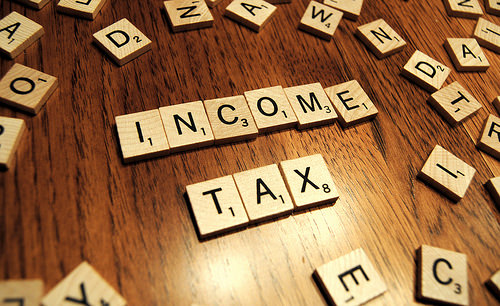There has been a lot of talk recently about tax, and as usual a great deal misinformation abounds. In Australia we have had a long winded debate over whether “negative gearing” (a tool that allows property owners to claim a tax deduction on loses incurred from investment properties) should be axed.
It’s my position that the whole debate is a storm in a tea cup – negative gearing is certainly not the greatest moral challenge of our time.
Negative Gearing is NOT the Greatest Moral Challenge of Our Time
There has also been a lot of talk recently about making the rich pay their “fair share” of tax, and that tax breaks should go to lower income earners rather than higher income earners.
Now my response to this may be a little difficult for some people to hear, so if this is a sensitive topic you may want to block your ears or look away.
The facts on tax is that the wealthy contribute the lion’s share of income tax receipts and the lowest third of the population contribute almost nothing.
Now I am not saying that this is fair or unfair, either way. I am merely outlining the facts.
Furthermore, there have been demands made from politicians and pundits, most notably from Geelong man Duncan Storrar who threw in his five cents worth on ABC’s Q&A last week, demanding that he (as a low income earner) be given a tax cut, rather than cuts going to high income earners. The Q&A audience and others rallied behind Storrar and called on the government to rectify this assumed injustice.
While we have an obligation to take care of the less well off as members of a civil society, the reality of tax cuts is that they can only go to people who actually pay tax.
The more tax you pay, the more a tax break will save you dollars. As the Q&A panelist Innes Willox rightly responded, Mr Storrar being a low income earner would likely pay no or very little income tax. Unperturbed, Mr Storrar insisted that the tax free threshold should be increased so that low income earners like him could benefit (instead of the wealthy). As this discussion continued to unfold, it appeared to be an little known fact that raising the tax free threshold would end up benefiting all payers of income tax, including the wealthy. It is impossible to single out low income earners for tax breaks. Instead of tax breaks, low income earners often benefit from various welfare benefits and payments (essentially a tax working in reverse).
It is important that we have an open and fact based discussion on tax rather than class-warfare and politics of envy we are faced with now. While lower taxes are generally a good thing and lead to benefits for everyone (including low income earners), the reality is that “tax breaks” are always going to have the greatest direct impact on those who actually pay tax.
XYZ
Photo by GotCredit 










